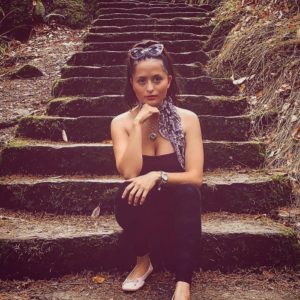New Camosun College Student Society (CCSS) First Nations director Evalyn Combes finds the horrible reality of residential schools in Canada—the last one of which closed in 1996—really hard to talk about. As such, she had mixed feelings when she first got the position of First Nations director in the CCSS spring elections this year.
“It’s humbling, but it’s hurtful,” says Combes. “My heart goes out to the families. It really shocked me, what’s going on. When I got the position, I didn’t think it would actually lead to the things I’ve had to discuss. Being able to have this position and discuss what residential school was about, I think is a good place for me to be in, as I’m able to speak about it at arm’s length.”
Combes’ father was a residential school survivor. She says patience is a key part of the process of reconciliation and of helping Camosun College move forward.
“One thing I can share with people is that you’re going to have to be patient with First Nations people, especially when they have gone to residential school, let alone gone back into college,” she says. “Just because we’re still trying to deal, we’re still trying to understand.”

Combes says that residential schools, racism in Canada, and the usage of proper terminology are all sore subjects to speak about, but being able to move forward means people have to educate themselves and be able to listen to people’s stories.
“Now we have a better understanding,” she says, “and I can understand why people don’t learn about it, necessarily.”
Combes wants there to be a safe space for people to learn about Canada’s past, and she also wants people’s willingness to learn to increase. In general, that willingness is quite good, she says, but there’s always room to improve.
“I’ve had to listen to some people who don’t feel like they need to speak about it, or when they do a land acknowledgement, you can really tell that they really don’t care, and that it’s just an inconvenience for them… You can really see the differences when people who want to actually listen to what we have to say, and actually want to learn about why we have a lot of the turmoil with our reserves, and why [Indigenous] students find it very difficult to go to college,” she says. “I think being able to have a safe space where people can actually come and listen to what’s going on, and why we’re trying to speak out about it, and having to need to do it… Because when they need to do it, they just don’t care.”
Combes says that, unfortunately, ignorance does not always come down to lack of education. In Zoom calls, for example, it can get “weird,” she says, if she says something about someone not using proper terminology.
“I’ve had a few people who weren’t completely using good terminology and who were being, kind of, even racist towards Caucasian people… It was international students, so I can understand where they were coming from, I guess,” she says. “It wasn’t a lack of understanding, I don’t think, but it was just upsetting, I guess. I didn’t want to voice anything; whenever I voice that I’m First Nations, the topic changes, voices change… There have definitely been a few times where people do understand what First Nations people have gone through and how hard it is for us to actually speak about it.”
Combes says that in August she will organize a walk from the Lansdowne campus in honour of missing and murdered Indigenous people.
